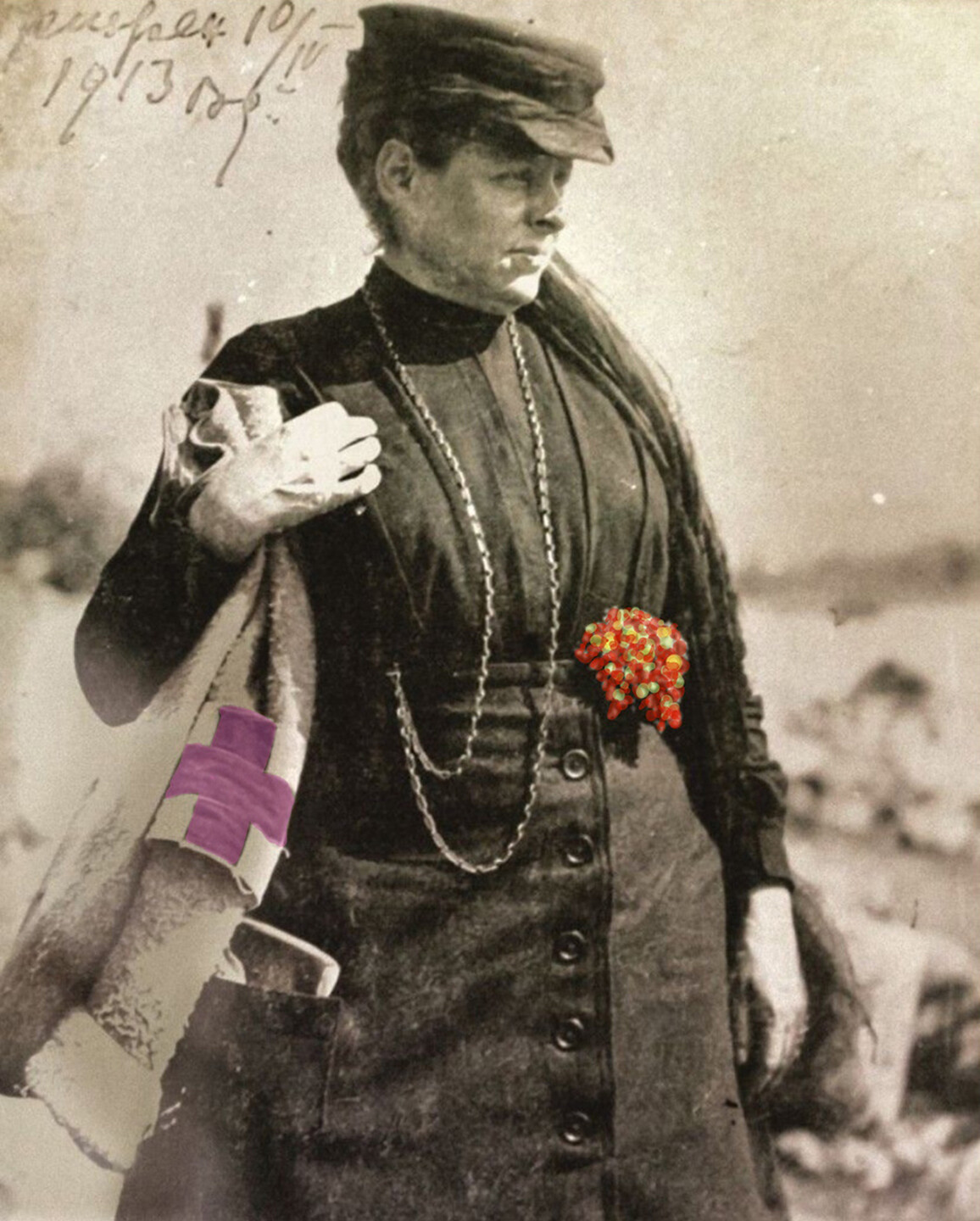32nd Nadežda Petrović Memorial
Memorial Sonja S.
September 21–November 5, 2024
Art Gallery Nadežda Petrović
Cara Dušana str. 6
32000 Čačak
Serbia
Hours: Tuesday–Friday 10am–8pm,
Saturday–Sunday 10am–2pm
T +381 32 322375
F +381 32 322375
galerija@nadezdapetrovic.rs
Curator: Zdenka Badovinac
Artists: Sanja Anđelković, Nika Autor, Sezgin Boynik and Tevfik Rada, Božena Končić Badurina, Mahdi Baraghithi, Natalija Vujošević, Neja Tomšić and Tara Langford, Željko Beljan, Ephemeral Confessions, Đejmi Hadrović, Hristina Ivanoska, Anton Kats, Dejan Marković, Gregor Mobius, Elvisey Pisică, Nadežda Petrović, Darinka Pop Mitić, Milica Rakić, Rena Rädle & Vladan Jeremić, Driton Selmani, Maja Smrekar, Bojan Stojčić, Andrej Škufca, Jelena Vesić, Vocal Curatorial Syndrome, Walid Raad
The Nadežda Petrović Memorial is a small international biannual exhibition that serves as a kind of living monument to one of Yugoslavia’s most important painters, Nadežda Petrović (1873-1915), or rather to all the struggles that can be linked to her. This year’s edition of the Memorial responds to questions about the role of the international biennial in the environments, such as the small Serbian town of Čačak. It seeks an answer in the active remembering of emancipatory local feminist traditions in dialogue with the pressing issues of our time.
The title of the 32nd edition of the Nadežda Petrović Memorial is Sonja S. Memorial. This title is a reference to two important women born in Čačak. The first is Nadežda Petrović, who is celebrated as one of the most important Serbian impressionists, expressionists and fauvists. She is less well known as a photographer of the Balkan Wars and the First World War, during which she also served as a nurse. Her photographs show that it is rarely women who start wars; their role remains to heal the wounds. The second is the legendary actress Sonja Savić (1961–2008), one of the most uncompromising artists, whose tragic life was marked by the collapse of Yugoslav society and the rise of the Milošević regime. The Biennial does not focus directly on these two Yugoslav heroines but builds on the emancipatory traditions in which they occupy a very important place. This year’s memorial, with its feminist undertone, acts as a living memorial, not only highlighting female artists but also linking various subordinate roles and their critical and creative impulses.
The title “Memorial Sonja S.” refers to the actress Sonja Savić, but has not much to do with her as a concrete person. She is represented by her name, while her family name is only abbreviated. Thus, her name in the title of the exhibition serves only as a metaphor for the role that defines the conceptual framework of this concept.
The decision to emphasize the role as the unifying thread between the works for our exhibition is due to the fact that our reality looks more and more like fiction where the main actors are playing a deadly game with us and our planet. They all play with the truth, local politicians, global actors, and artificial intelligence. Today it is no longer possible to agree on what the truth is. Which role of ours is nearer to the true self? To what extent are we really ourselves and not someone else? What is clear is that we are not whole in our human roles, in our gender, class, race, or national identity. Our subjectivity does not exist as a stable, independent, and self-contained whole, but is constantly changing in interaction with the environment, technology, and other species. There is surely only one authentic role we can play in our lives, and that is that of an agent who can influence the conditions that shape us as social and human beings. And this applies not only to the present but also to our past and our future.
Memorial Sonja S. will seek to build on the idea of the artist as an agent who challenges the prevailing rules of social, gender, class, and geopolitical roles, even roles that go beyond mere human relations and penetrate the field of interspecies relations. We are still used to talking about the role of women in society, in war, in health care, etc., but we never talk about the role of men in society, in war, in health care, etc., always emphasizing the specific identity of women, while the role of men all too often remains universal. The agendas of those in power, those in dominant political or economic positions, are most often popularized as a universal good, never in terms of roles that serve specific interests. On the contrary, individual groups subordinated to different positions of power have no problem claiming that they are fighting for a greater role in social life. Only those who do not have a large enough role in society can feel that there is really no difference between fiction and reality, that it is all about a constructed reality in a way that suits only one set of roles, and these are the roles that are playing a fatal game for all of us today.

